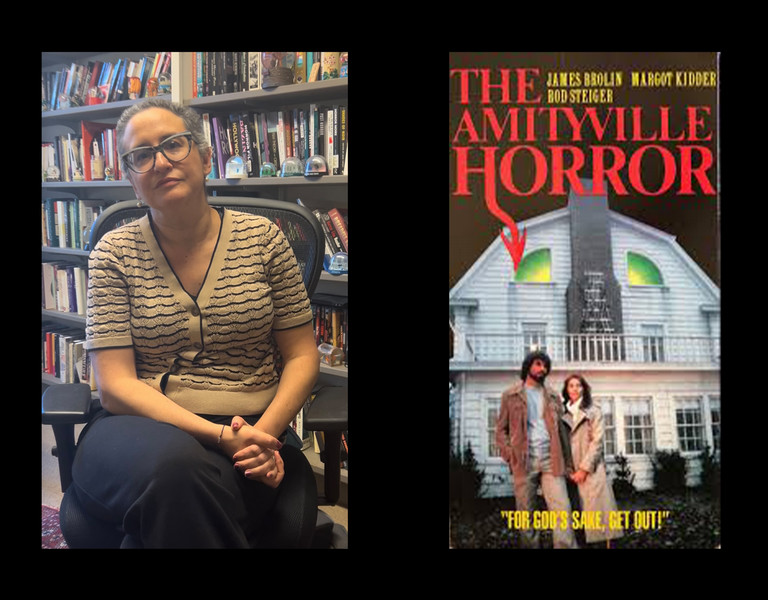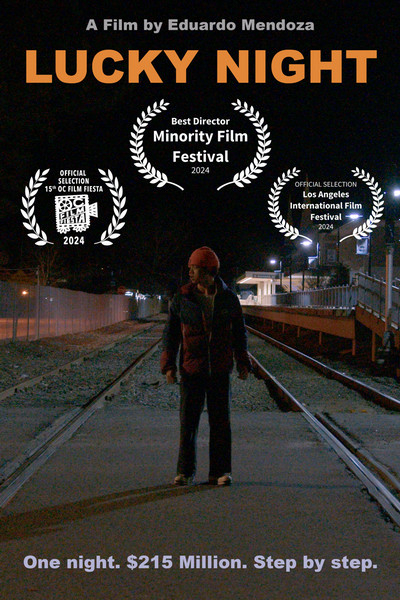Filmmaker Rickey Larke ’15 Turns His Lens on Bowdoin, the Ivies, Home
By Rebecca Goldfine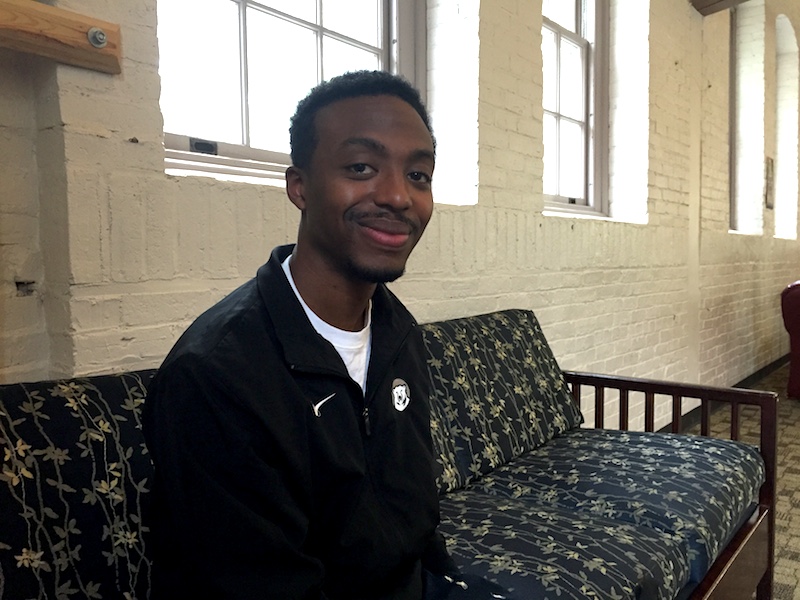
In the movie “SurvIvies,” a 45-minute documentary Rickey Larke ’15 shot last year for an independent study at Bowdoin, the suspense mounts.
Larke tracks the days leading up to Ivies, Bowdoin’s annual bash in April, with growing curiosity, apprehension and agonized self-doubt. He begins filming 50 days before the event, and he marks the passing of days and weeks with titles that pop up on the screen: “44 days before Ivies weekend,” “16 days before Ivies weekend, etc.”
Though he was an upperclassman when he made the documentary (he finished editing it this fall), Larke had never attended Ivies because it always conflicted with a big track meet. Larke is a sprinter, and this year is captain of the track team. So the event had taken on mythical proportions for him — it loomed in his imagination as a kind of symbolic “rite of passage” that remained out of reach for him.
The documentary’s narrative arc and suspenseful build-up were the result of careful forethought and editing, Larke says. “For me, story is central. If you don’t have a compelling story that is says something new then whatever you make just won’t be interesting,” he said. “Without a good story its hard to get people to actually connect with the content so I am all about story structure and storytelling.” He says his sensitivity to building a storyline has been reinforced in his film classes (he is a cinema studies minor) and in his internships with BET Network and HBO.
Besides SurvIvies, Larke has also made music videos and shorts for Bowdoin Cable Network. He’s been into the film medium since he was a kid; he recalls passing the time mowing his parent’s lawn by listening to music and imagining the kinds of videos that should accompany them. When Larke was in high school, he made promotional videos for the football team to entice people to come out to games. When he interned with a lobbyist in Chicago, he made videos to reach young constituents.
Sarah Childress, Larke’s advisor and a visiting assistant lecturer in cinema studies, worked with Larke for two semesters to help him develop the film. She described Larke as a talented, “natural-born filmmaker.” She added, “His compositions are consistently beautiful. He knows when to turn the camera on and how to catalyze a productive conversation. He’s a great editor and has a super sense of montage rhythm, especially when he cuts to music.”
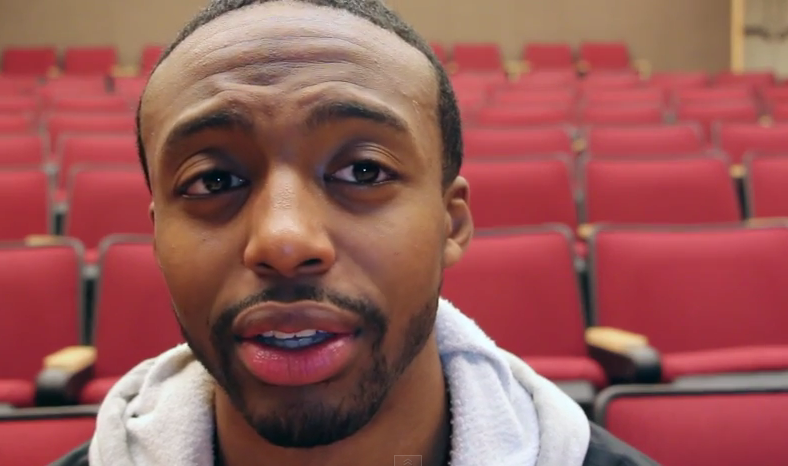 In SurvIvies’ first scenes, Larke starts by speaking directly to the camera, explaining that he is making the movie to try to discover “the essence of Ivies weekend.” But the film ends up being more than a movie about a college party, and instead becomes a way for Larke to reflect, often with a good sense of humor, on Bowdoin, his college experience, and where he comes from. He grew up in the south side of Chicago.
In SurvIvies’ first scenes, Larke starts by speaking directly to the camera, explaining that he is making the movie to try to discover “the essence of Ivies weekend.” But the film ends up being more than a movie about a college party, and instead becomes a way for Larke to reflect, often with a good sense of humor, on Bowdoin, his college experience, and where he comes from. He grew up in the south side of Chicago.
“Part of why I made the doc is because Bowdoin is so very different from where I grew up,” Larke said recently in an interview. “When I talk about home here, it’s like a sociology class. When I talk about Bowdoin when I’m home, it’s like a fantasy novel.”
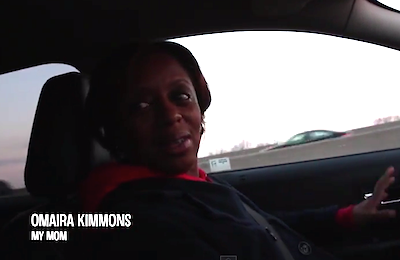
The film, which takes place mostly on campus and features many Bowdoin students, also includes scenes from a trip Larke takes back home. While he’s on spring break, he records conversations he has with his mother, his best friend, and his neighbor. In all of these, Larke is reflecting — obsessing even — about the film and what it is about. To his mother, who picks him up at the airport, he admits, “My doc has changed from about being just about the Ivies weekend to being about college experiences.”
He goes over some of his theories with her. “Ivies is a rite of passage at Bowdoin. You are not fully a polar bear until you go to Ivies and come together as a community,” he said. “I hope that’s not the case because I’ve never been and I’ll never go. I’ll never be Bowdoin.”
Although Larke is a major character in the film, and we hear from him a lot, he said he recognized that his authority to conclusively say what Ivies was all about was limited. So he includes the opinions of many students, staff and faculty, whom he interviews in the weeks leading up to Ivies. He also selected three students — two first-years and a senior — to serve as his moles of sorts. Because he could not attend Ivies, Larke used them to capture the event for him. He outfitted each with a GoPro camera and interviewed them for hours before, during and after the weekend.
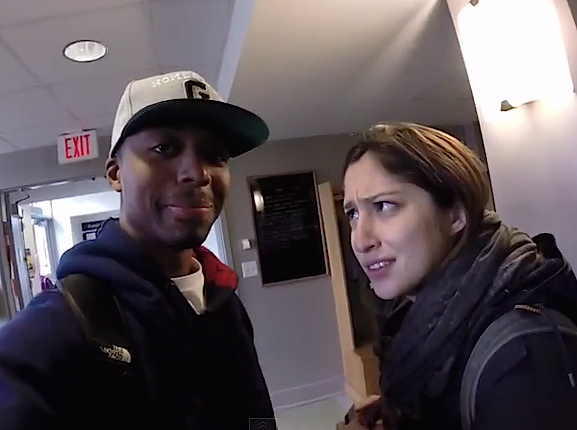 SurvIvies includes a lot of footage of revelry. In the camera lens, people dance, yell, slide down slippy-slides, blow smoke into the camera, play drinking games. Larke said he made sure every student featured in the film saw and approved the footage before he put it into his final cut. “Professor Childress [Larke’s advisor] held me to high ethical standards,” he said.
SurvIvies includes a lot of footage of revelry. In the camera lens, people dance, yell, slide down slippy-slides, blow smoke into the camera, play drinking games. Larke said he made sure every student featured in the film saw and approved the footage before he put it into his final cut. “Professor Childress [Larke’s advisor] held me to high ethical standards,” he said.
He does not flinch from showing anything. “I wanted this to be an honest project,” Larke said. “If you’re not going to be honest, what’s the point of making docs?”
Childress agreed that Larke is fearless. “He doesn’t give up. He’ll talk to anyone about anything at any time and he doesn’t shy away from sharing his thoughts and emotions,” she said, “which makes his films feel honest and authentic.”
In the final scenes of the film, post-Ivies, the camera pans over the empty campus and the litter strewn across the ground. In the camera, Larke ruminates, “What is Ivies? Ivies is escapism, escaping from the paper or project you have to do, escaping from you responsibilities of day-to-day life… It is that one weekend when they can let go for a second.”
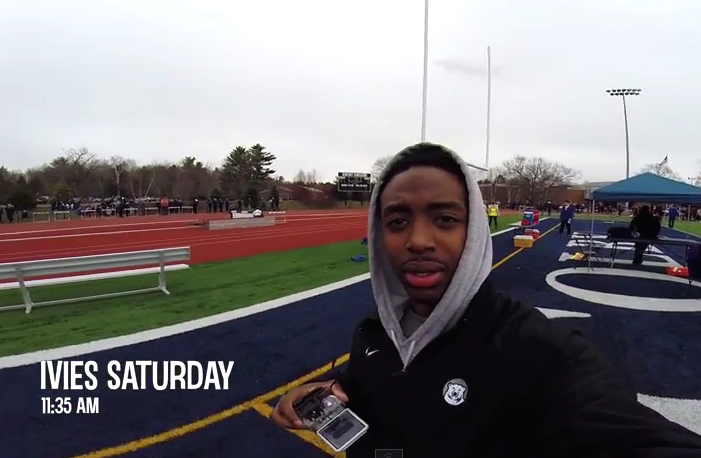 But there is no such thing as real escape, he reminds us. “When you drop responsibilities and decide not to be responsible, it doesn’t just go away, someone else has to be responsible,” he says. “When you become irresponsible, that responsibility falls on someone else.”
But there is no such thing as real escape, he reminds us. “When you drop responsibilities and decide not to be responsible, it doesn’t just go away, someone else has to be responsible,” he says. “When you become irresponsible, that responsibility falls on someone else.”
The movie ends with a mundane scene in a college dorm, showing just how quickly students slip back into their normal routines.
Larke says he’s now looking for jobs to fund his next project. He’s writing a script for a short film set at a college in the south, and he’s also thinking about making a documentary about his father who lives in Englewood, in Chicago, one of “the most violent cities in America,” Larke said. Though his father is “passionate, and the best storyteller I know,” he is stuck, mired in his environment. The film, Larke says, will be about opportunities, which he feels he has had and his father did not.
“I aspire to be an artist,” Larke said, adding, “artists have something to say.”

